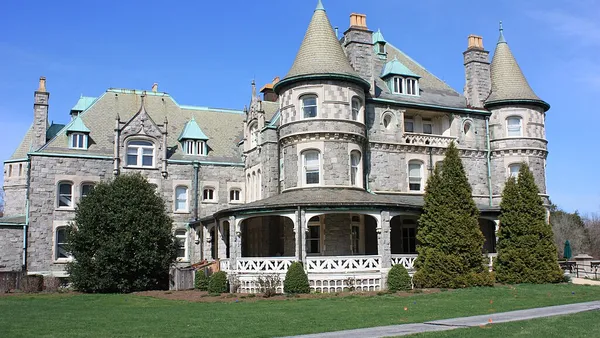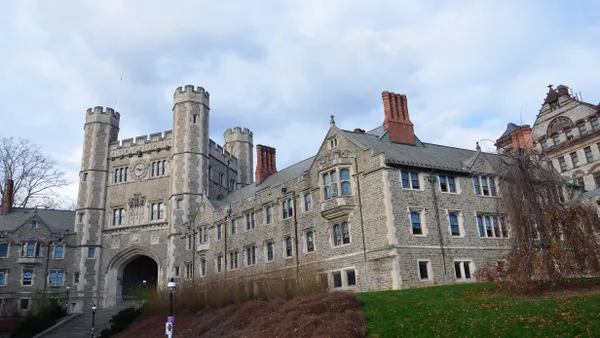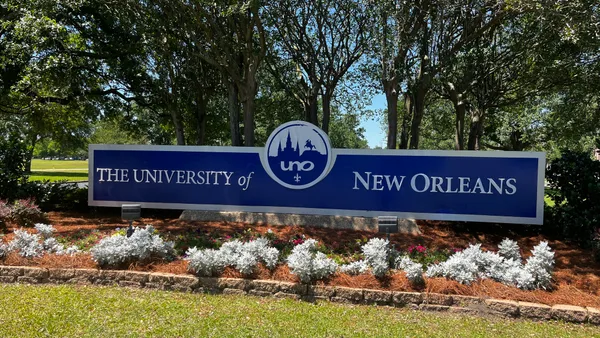Dive Brief:
- Alderson Broaddus University, a Baptist institution in West Virginia that higher ed experts say is at risk of closure, has an unpaid utility bill of nearly $776,000, spurring local government officials to threaten to cut off services.
- The city of Philippi told the university it will end water, sewer, garbage and electric services on or after July 31 if the bill is not paid, according to an undated termination notice. An Alderson Broaddus spokesperson did not provide a comment by publication time Wednesday.
- The university’s financial stress comes at a time when several small colleges, including religious ones like Alderson Broaddus, have announced they are shutting down, citing reasons like inflation and economic fallout from the COVID-19 pandemic.
Dive Insight:
Alderson Broaddus — a financially struggling institution with several hundred undergraduates — has many hallmarks of an institution on the verge of collapse.
Its enrollment has dropped steadily in recent years, from roughly 1,150 students in fall 2015 to fewer than 800 in fall 2022, according to federal data. That downturn has thrown its finances into uncertainty and prompted West Virginia regulators this month to grant the university only provisional approval to operate.
The state’s provisional agreement with Alderson Broaddus requires the university to develop teach-out plans by Oct. 1 to help its students transfer to other institutions to finish their education. It also demanded the university secure students’ academic and financial aid records with a third party.
And regulators warned they would revoke their blessing at any time should the institution not meet the state’s benchmarks for financially solvent colleges. The university is authorized to operate through June 2024.
The university remains accredited. But its accreditor, the Higher Learning Commission, plans to meet with Alderson Broaddus officials next week as a part of renewing its accreditation, according to local press reports.
An HLC official told Higher Ed Dive this month that in making accreditation decisions, it would consider regulatory actions against the university, like the one the state just took.
The utility termination notice only adds to Alderson Broaddus’ troubles. It states that the university can contest the cancellation for several reasons, including if cutting off service would threaten “the health or safety of a member of your household.”
The university has struggled to pay its bills before. It defaulted on a roughly $36 million bond in 2015, which had been issued to pay for new student housing and an athletic stadium, according to a former governing board member.
The default in part prompted HLC to put the institution on probation in 2017. HLC lifted the probation two years later but also informed the university its financial instability could put it out of compliance with the accreditor’s standards.
HLC removed the sanction in 2021.















